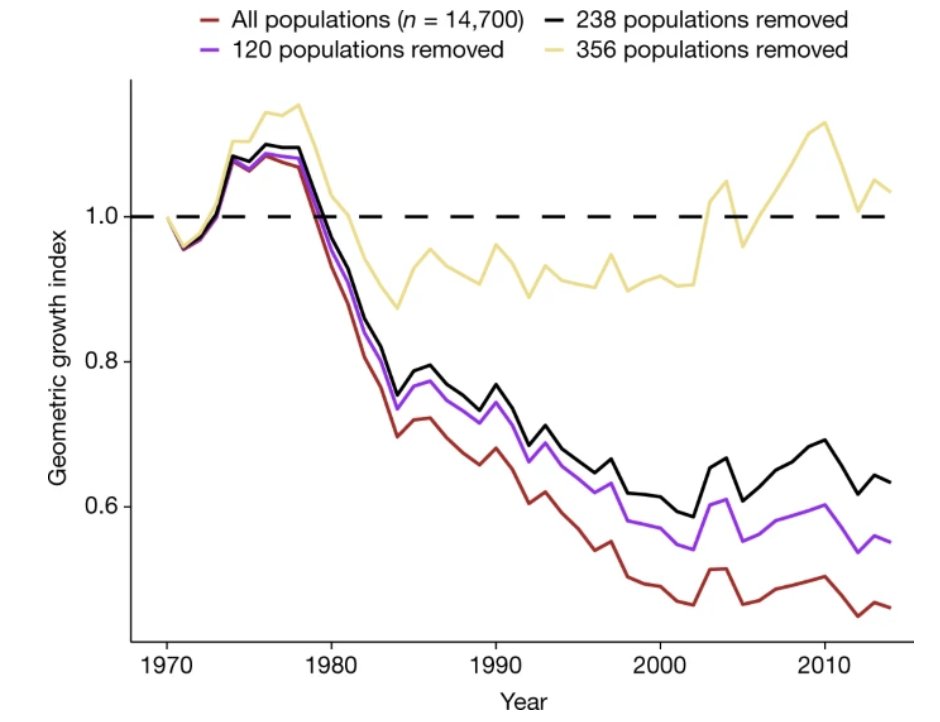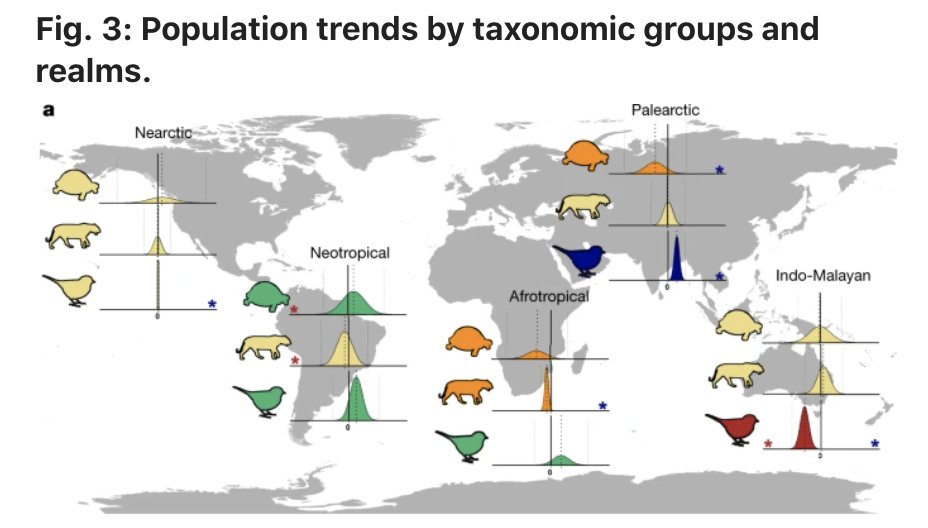Very important reanalysis of the Living Planet Index trends @nature
Clustered versus catastrophic global vertebrate declines
https://www.nature.com/articles/s41586-020-2920-6
Clusters of extreme decline in ~1% of populations. The remaining 98% of populations showed no mean global trend #biodiversity
Clustered versus catastrophic global vertebrate declines
https://www.nature.com/articles/s41586-020-2920-6
Clusters of extreme decline in ~1% of populations. The remaining 98% of populations showed no mean global trend #biodiversity
Reason for optimism? They show that previously estimated global declines are driven by a few extremely declining populations. Removing only 2.4% of declining populations reversed the estimated global trends from more than 50% mean decline since 1970 to a slightly positive growth.
Aggregating data into one global trend hides important variation. Three systems, all of which occurred in the Indo-Pacific realm, showed widespread vertebrate declines across typical populations. Populations of smaller species may be faring worse than larger ones.
Quoting them: "Our results emphasize an important point: biodiversity trends within and across regions and taxa are highly disparate. This probably reflects differences in both susceptibility and exposure to anthropogenic environmental change."
"Unravelling this variation is imperative to understand in which regions #biodiversity is threatened the most and which conservation actions promote stability or recovery...
"A productive global conversation about conservation requires that both scientists and media pay more attention to variation and resist the temptation of simple summary indices."
This leads to a crucial conclusion:
"Shifting the message from ubiquitous catastrophe to foci of concern, also touches on human psychology. Continual negative and guilt-ridden messaging can cause despair, denial and inaction."
"Shifting the message from ubiquitous catastrophe to foci of concern, also touches on human psychology. Continual negative and guilt-ridden messaging can cause despair, denial and inaction."
Excellent research by Brian Leung, @AnnaLHargreaves @BioMcGill @csbq_qcbs
https://www.mcgill.ca/newsroom/channels/news/vertebrate-biodiversity-glimmer-hope-326269
and coauthors @maadornelas Dan Greenberg, Brian McGill, & Robin Freeman
https://www.mcgill.ca/newsroom/channels/news/vertebrate-biodiversity-glimmer-hope-326269
and coauthors @maadornelas Dan Greenberg, Brian McGill, & Robin Freeman
and a shareable link to the paper:
https://rdcu.be/caYtN
https://rdcu.be/caYtN

 Read on Twitter
Read on Twitter



